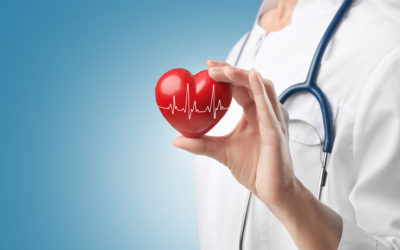Heart Attack Warning Signs
Heart Health
Knowing heart attack symptoms and triggers can save a life.
Heart disease is the No. 1 killer in the United States. Heart attacks can happen to anyone, regardless of your age and fitness level.
Hypertension or high blood pressure is a leading cause of coronary artery disease and stroke. Hypertension is called the “silent killer” because about one-third of the people with this condition do not know that they have it.
Risk factors for silent heart attacks are the same as for regular heart attacks – smoking, diabetes, stress, and family history. Individuals who suffered these silent attacks often experienced a symptom they did not attribute to heart trouble, and had another risk factor for heart disease, such as high cholesterol or high blood pressure.
Common heart attack warning signs
According to the American Heart Association, heart attack warning signs typically begin slowly, with mild pain or discomfort. The AHA considers the following as warning signs:
- Chest discomfort, such as uncomfortable pressure, squeezing, fullness or pain
- Pain in one or both arms, the back, neck, jaw or stomach
- Shortness of breath, with or without chest discomfort
- Cold sweat, nausea or lightheadedness
Additional heart attack symptoms include: a weak feeling, sudden dizziness, a pounding heart, shortness of breath, heavy perspiration, a feeling of impending doom, nausea and vomiting. Notably, women and men often experience different heart attack symptoms. Women are more likely to have non-traditional heart attack symptoms like fatigue, indigestion and sleep disturbances.
Heart attack triggers
A heart attack may seem to come from nowhere, but this is rarely the case. The timing is determined by heart attack triggers. A trigger is a situation that can make a heart attack more likely.
A trigger may tip the balance when the person has a known or unknown heart attack risk factor but does not, by itself, cause a heart attack. Some common triggers include lack of sleep, overeating, stress, infections or unusually heavy exercise.
Talk with your doctor to learn more about heart attacks and keeping your heart healthy.
Learn about Hands-Only CPR from the American Red Cross:
For More Information
Call 256-845-9255
Related Services and Conditions
Cardiology
Cardiac Care at focuses on the functions and disorders of the heart and its connected circulatory system. According to the American Heart Association, 84 million people in the U.S. suffer from some form of cardiovascular disease, affecting...
Cardiac Rehabilitation
At , we’re all heart. The cardiac rehabilitation services at help people living with heart disease or who are recovering from a cardiac event like a heart attack or bypass surgery build endurance and strength. But it’s...


